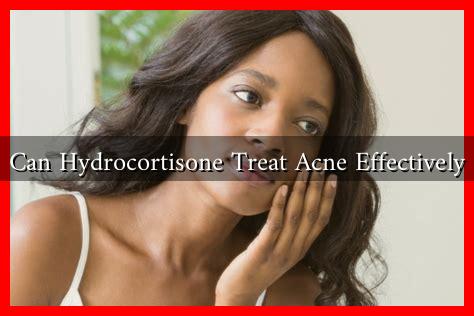-
Table of Contents
Can Hydrocortisone Treat Acne Effectively?
Acne is a common skin condition that affects millions of people worldwide, often leading to physical and emotional distress. While there are numerous treatments available, the use of hydrocortisone for acne management has sparked interest and debate. This article explores the effectiveness of hydrocortisone in treating acne, its mechanisms, potential benefits, and drawbacks, as well as alternative treatments.
Understanding Hydrocortisone
Hydrocortisone is a corticosteroid that is commonly used to reduce inflammation and suppress the immune response. It is available in various forms, including creams, ointments, and oral medications. While hydrocortisone is primarily prescribed for conditions like eczema, psoriasis, and allergic reactions, its anti-inflammatory properties have led some to consider its use for acne treatment.
How Hydrocortisone Works on Acne
Acne is characterized by the inflammation of hair follicles and sebaceous glands, often exacerbated by bacteria, excess oil production, and hormonal changes. Hydrocortisone can potentially help in the following ways:
- Reduces Inflammation: By decreasing inflammation, hydrocortisone may help reduce the redness and swelling associated with acne lesions.
- Suppresses Immune Response: It can inhibit the immune response that contributes to acne flare-ups, potentially leading to fewer breakouts.
- Soothes Irritation: Hydrocortisone can provide relief from irritation and discomfort caused by acne.
Case Studies and Evidence
While anecdotal evidence suggests that hydrocortisone may help with acne, scientific studies specifically examining its effectiveness for this purpose are limited. A few case studies have reported positive outcomes:
- A study published in the Journal of Dermatological Treatment noted that patients using hydrocortisone cream experienced a reduction in inflammatory acne lesions.
- Another case involved a patient with cystic acne who found temporary relief from inflammation after applying hydrocortisone cream, although the results were not long-lasting.
Despite these reports, it is essential to note that hydrocortisone is not a first-line treatment for acne and should not be used as a primary therapy.
Potential Risks and Drawbacks
While hydrocortisone may offer temporary relief, there are several risks and drawbacks to consider:
- Skin Thinning: Prolonged use of hydrocortisone can lead to skin thinning, making the skin more susceptible to damage and infections.
- Rebound Effect: Discontinuing hydrocortisone after prolonged use may lead to a rebound effect, causing acne to worsen.
- Not a Cure: Hydrocortisone does not address the underlying causes of acne, such as hormonal imbalances or bacterial overgrowth.
Alternative Treatments for Acne
Given the limitations of hydrocortisone, individuals seeking effective acne treatment may consider the following alternatives:
- Benzoyl Peroxide: An antibacterial agent that helps reduce acne-causing bacteria.
- Salicylic Acid: A beta hydroxy acid that exfoliates the skin and unclogs pores.
- Retinoids: Vitamin A derivatives that promote cell turnover and prevent clogged pores.
- Oral Medications: Antibiotics or hormonal treatments may be prescribed for more severe cases.
Conclusion
In summary, while hydrocortisone may provide temporary relief from inflammation associated with acne, it is not a definitive treatment and carries potential risks. Its use should be approached with caution, and individuals are encouraged to consult with a dermatologist for personalized advice. Effective acne management often requires a multifaceted approach, incorporating various treatments tailored to the individual’s skin type and condition. For more information on acne treatments, consider visiting the American Academy of Dermatology.


